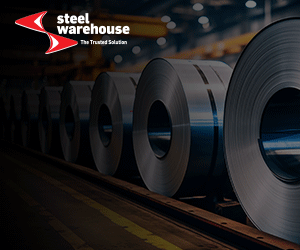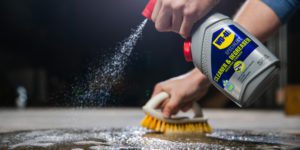Manufacturing Engineers: Holistic Heroes of Safety
Phil La Duke of Rockford Greene explains why the skills and tools of this engineer are essential to the creation of a safe and predictable workplace that improves process capability by reducing variation in each stage of the product lifecycle.
Posted: August 16, 2012
One tool for reducing the probability of worker injuries is called mistake proofing. Mistake proofing (or the less politically correct appellation “idiot proofing”) is the practice of applying the highest level of the hierarchy of controls to use engineering skill to eliminate hazards during the design stage. Mistake proofing makes human errors less likely and prevents those mistakes that do occur from causing injuries. Mistake proof is also called “poka-yoke” by lean practitioners.
Mistake proofing is difficult without first anticipating the ways in which a process can fail. In an attempt to predict and prevent process breakdowns, engineers conduct a failure mode effects analysis (FMEA) to identify all the ways in which a process can fail, the relative likelihood in which these failures will occur, and suggest preventive actions and countermeasures for avoiding catastrophe. Of course FMEAs address more than just safety issues, but they are an important element in a safety management system.
Part of the role of the manufacturing engineer is to analyze work force utilization, facility layout and workflow for maximum productivity; these can have a pronounced impact on safety directly through ergonomic improvements, but they can also reduce worker fatigue and improve worker performance and accuracy which, in turn, improves safety.
Manufacturing engineers are often the technical point of contact with vendors and guide the development of product specifications and coordinate the purchase of equipment. This influence over vendors helps to shape the safety not only of their workplace, but of the supplier’s workplace as well.
Because manufacturing engineers influence the physical environment in which goods are manufactured, they are often tasked with establishing and maintaining a 5S program, a Japanese manufacturing discipline that emphasizes the need for a standardized and orderly workplace that is free of variation and hazards. The most common translation of 5S is standardize, sort, set in order, scrub, and sustain. 5S programs reduce safety hazards like exposure risks, trip hazards, and even ergonomic concerns.
Manufacturing engineers also have problem-solving, diagnostic, and root cause analysis skills that are indispensable to the safety of the workplace. Most notable of these skills is probably root-cause analysis, a disciplined approach used to identify the systemic causes of injuries and near misses and to solve process problems by identifying, containing, and permanently correcting issues – all key resources to the safety engineer.
Excessive variability makes manufacturing unreliable and even dangerous. The manufacturing engineer continually looks for ways to make the work more predictable and reliable. Standard Work is a tool that manufacturing engineers use to ensure that a job is done the same way each time. This tool, combined with other techniques, can advance the safety of the work being performed by identifying the “standard” process and looking for ways reduce variation from this standard, meaning there is far less risk associated with a worker performing the tasks associated with his or her jobs.
The skills and tools of a manufacturing engineer are essential to the creation of a safe and predictable workplace. Most of the work of safety engineers would not be possible without the numerous contributions of the manufacturing engineer. From the input that they provide to inform product and process designs to the improvements and enhancements they make to improve process capability, there is scarce little that manufacturing engineers don’t directly influence in workplace safety.















